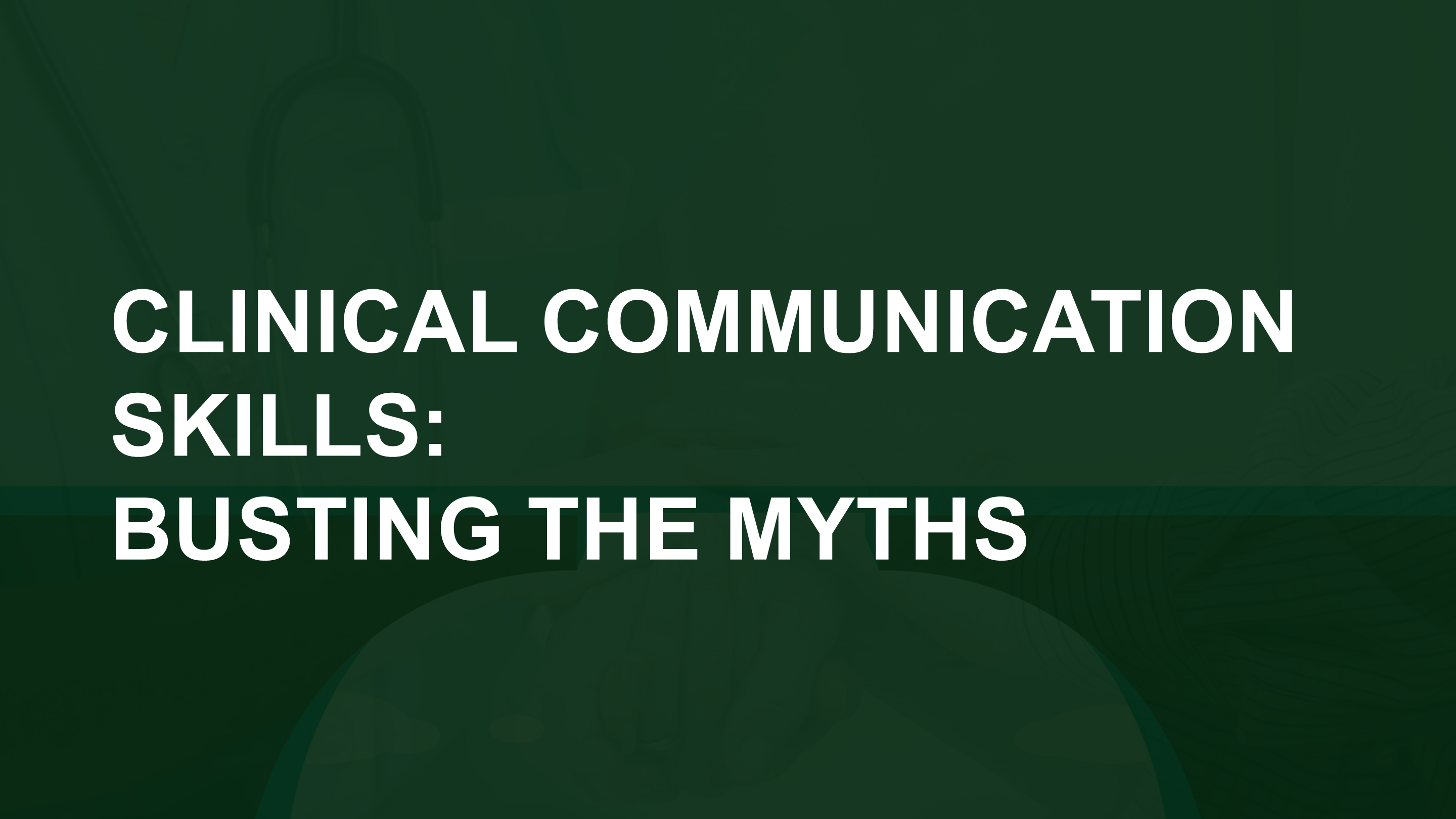Busting The Myths
MYTH: Clinical Communication skills cannot be learned.
FACT: There is strong evidence to affirm that Clinical Communication Skills can both be learned and retained. The term Clinical Communication Skills encompass several skills such as medical consulting skills, emotional competence, listening, information giving, teamwork, leadership etc. Good news is that with structured training these skills can be attained.
MYTH: All doctors are naturally good communicators.
FACT: Only minority of Doctors are naturally good communicators by virtue of their personal gifts. Majority of Doctors do not possess such personal gifts. The good news, however, is that everybody can become good communicators with professional training and mentoring. Communication is more than being nice; it involves what you say, how you say, when you say, and when you stop.
Please ask yourself: How skilled am I at communicating with patients, families, and colleagues? How do I know if I am good or not?
MYTH: Clinical Communication Skills get better with experience.
FACT: The experience does not automatically improve Clinical Communication Skills. In fact, “experience can be a poor teacher.” (1) It depends on your ability to accurately reflect on and critique your skills. Evidence suggests that- “While experience may be an excellent reinforcer of habits, it tends not to discern between good and habits.” So, it is important to take time and reflect on Clinical Communication Skills at regular intervals.
Some questions you may ask yourself:
How often do I take time to reflect on my work as a clinician?
Am I aware of my limitations and willing to admit to them?
How willing am I in making the needed changes?
MYTH: Clinical Communication Skills are not clinical skills.
FACT: Clinical Communication Skills are recognised as core clinical skills and demands teaching just as much as the technical skills. They are central to clinical practice and are essential component of clinical competence. Its important to acknowledge that “every conversation you have with patients, families and colleagues is potentially therapeutic.” (2)
Reference:
1.Kurtz et al. Teaching and Learning Communication Skills in Medicine 2nd edition.
2. Mayerson, Evelyn Wilde. Putting The III At Ease.


Reviews